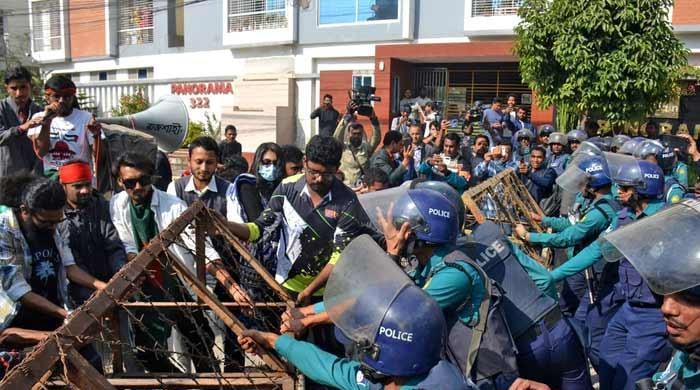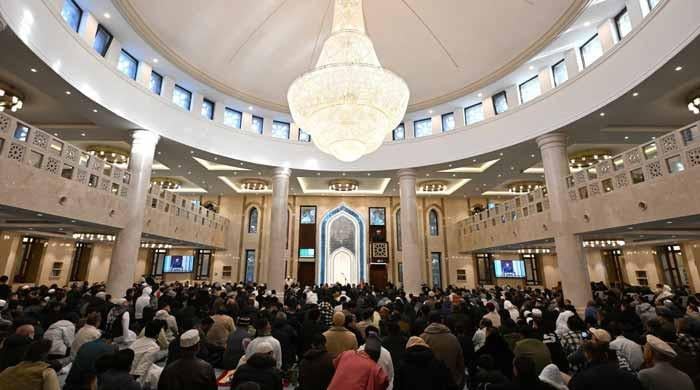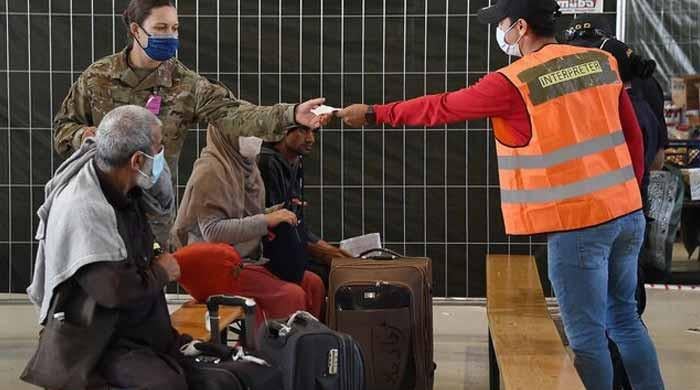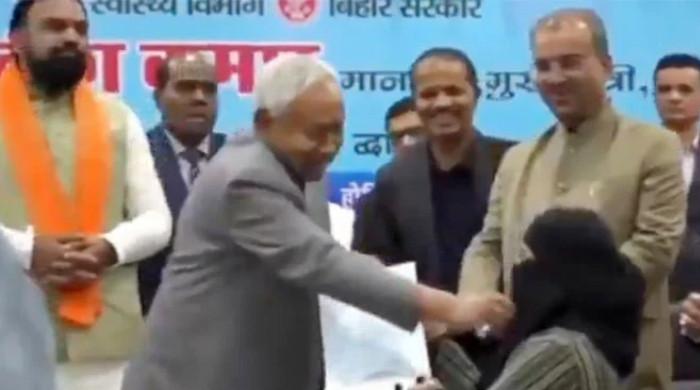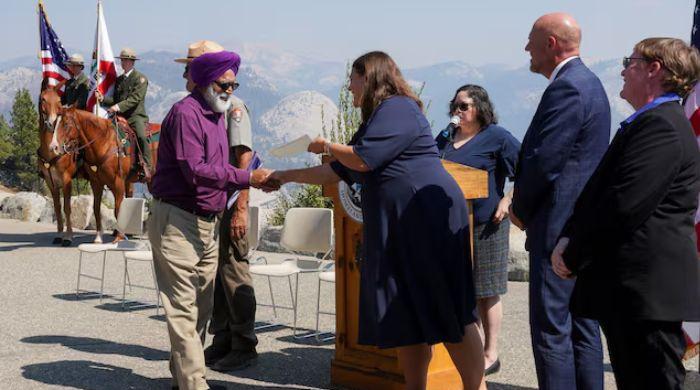What has transpired since US killed Iran's Soleimani?
A recap of events since the killing of a top Iranian commander Qasem Soleimani in Baghdad by the United States
January 08, 2020
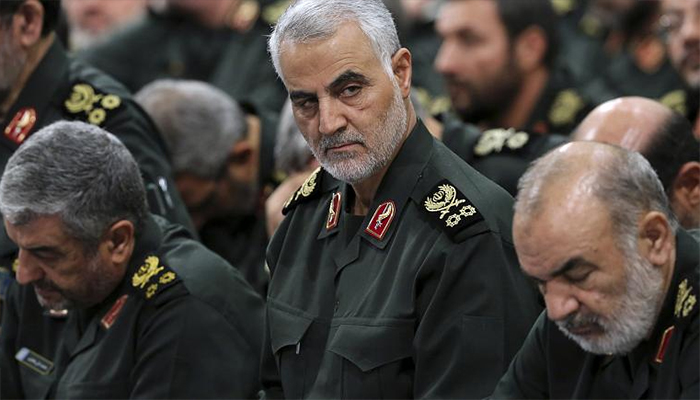
Here is a recap of events since the killing of a top Iranian commander Qasem Soleimani in Baghdad by the United States on January 3, which escalated tensions between Tehran and Washington:
US assassinates Soleimani
On January 3 a US drone strike on Baghdad's international airport kills Soleimani, head of the Revolutionary Guard Corps' foreign operations arm, the Quds Force.
Read more: How the US-Iran conflict unfolded in recent months
Also among the dead is Abu Mahdi al-Muhandis, deputy chief of the Tehran-backed Iraqi paramilitary network Hashed al-Shaabi.
The Pentagon confirms Trump ordered Soleimani's assassination while the US embassy in Baghdad urges all Americans to leave Iraq "immediately".
The killing comes days after thousands of pro-Iranian supporters stormed the US embassy in Baghdad, chanting "Death to America!", angered by US strikes against Hashed bases in Iraq.
Those US strikes, on December 29, had been in retaliation for rocket attacks against US interests in Iraq in which a US civilian contractor was killed.
Iran calls for revenge
Iran's supreme leader Ayatollah Ali Khamenei promises "severe revenge" for Soleimani's death.
In Iraq, caretaker prime minister Adel Abdel Mahdi warns that the US strike will "spark a devastating war in Iraq", while President Barham Saleh pleads for "voices of reason" to prevail.
Read more: Iran vows to avenge Soleimani death in 'right place and time'
US Secretary of State Mike Pompeo tells CNN that Soleimani had been planning imminent action "that would have put dozens, if not hundreds of American lives at risk".
A Pentagon official says the US is deploying up to 3,500 more troops to the Middle East.
Trump threatens 52 Iran sites
On January 4, Trump warns that the US is targeting 52 sites in Iran and will hit them "very fast and very hard" if the Islamic republic attacks American personnel or assets.
He says sites "important to... Iranian culture" are on the list.
The next day, Pompeo insists any US military action against Iran will conform to international law after Trump is accused of threatening a war crime by declaring cultural sites as potential targets.
Nuclear deal unravels further
On January 5, Iran announces its fifth step back from the nuclear deal with world powers agreed in 2015, saying it will forgo a "limit on the number of centrifuges".
Read more: Iran says to forego 'limit' on nuclear enrichment centrifuges
Since May 2019 Iran has gradually freed itself from commitments to which it had subscribed, in response to the unilateral withdrawal a year earlier of the US which reinstated economic sanctions against Tehran.
Funeral turns deadly
After days of mourning for Soleimani in Iraq and Iran, a stampede during a massive funeral procession in Iran kills more than 50 people.
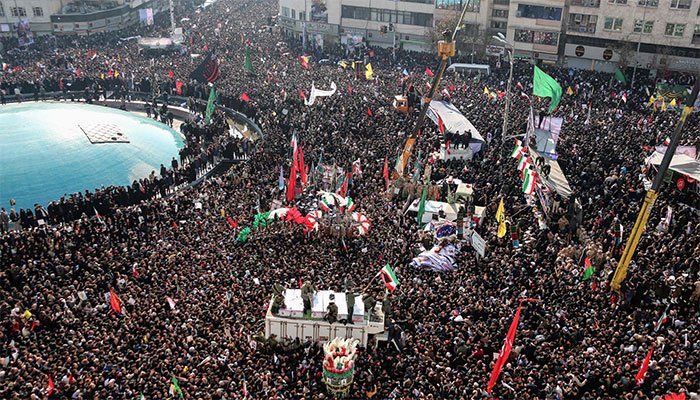
In Baghdad, Mahdi confirms he has received what the US called a draft letter, describing steps its military would take to "move out" of Iraq.
In Washington, US officials scramble to deny the idea, calling the letter a mistakenly released draft.
US Defense Secretary, Mark Esper, says the Pentagon's "policy has not changed. We are not leaving Iraq".
Iran strikes back
Iran launches a volley of missiles early Wednesday at Iraqi bases housing US and other coalition troops.
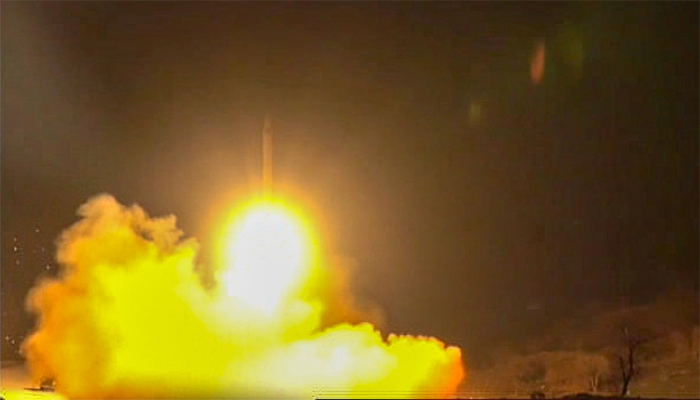
Iran's supreme leader Ayatollah Ali Khamenei says the strikes are a "slap in the face" for the United States and revenge for Soleimani's death is yet to come.
Iraq's military said it sustained no casualties, and US President Donald Trump said initial casualty assessments indicated "all is well".





